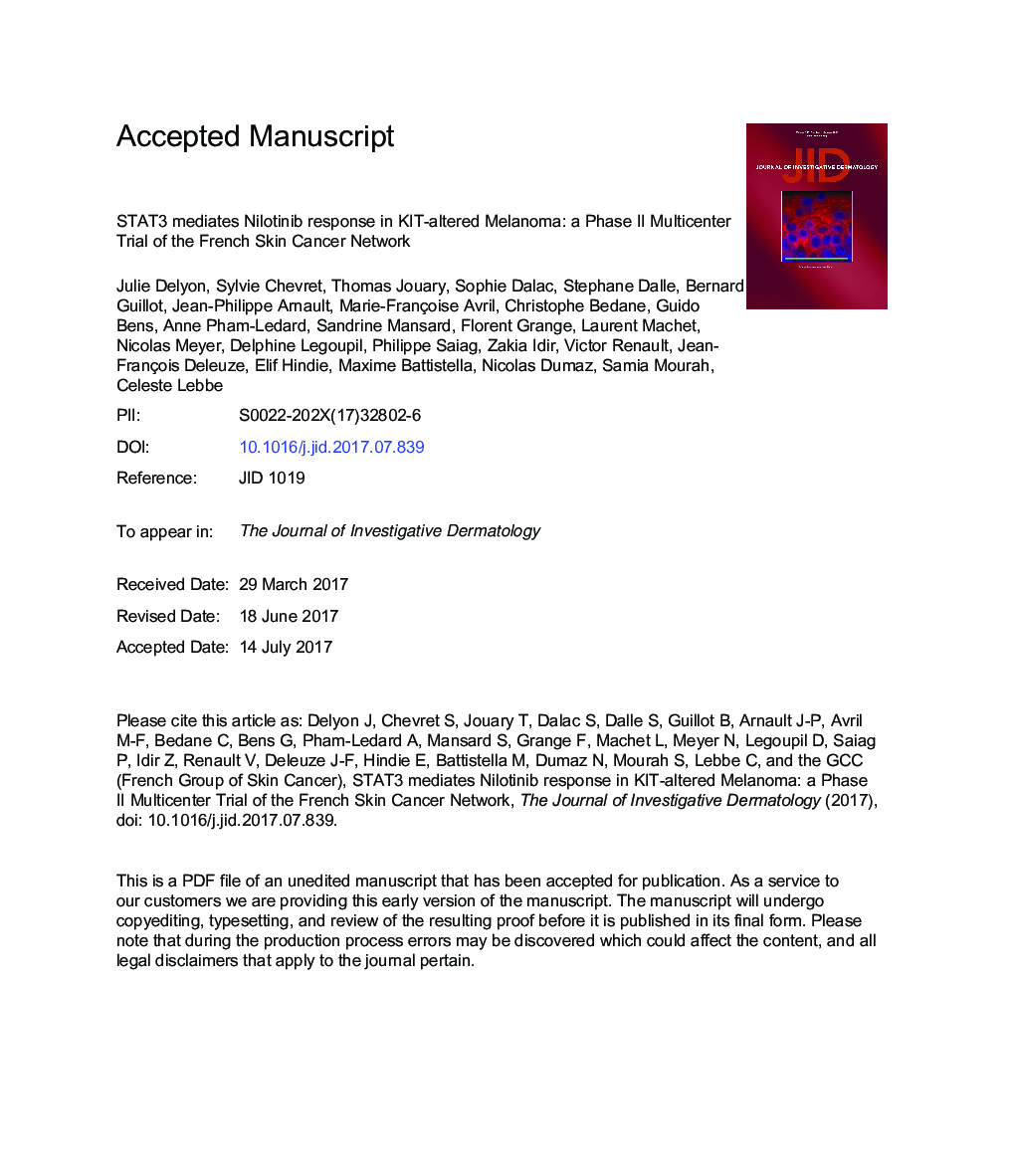| Article ID | Journal | Published Year | Pages | File Type |
|---|---|---|---|---|
| 8716230 | Journal of Investigative Dermatology | 2018 | 35 Pages |
Abstract
Mutated oncogenic KIT is a therapeutic target in melanoma. We conducted a multicenter phase II trial on the KIT inhibitor nilotinib in patients with unresectable melanoma harboring KIT alteration. The primary endpoint was the response rate (complete response or partial response following Response Evaluation Criteria in Solid Tumors criteria) at 6 months. Pharmacodynamic studies using KIT sequencing, qPCR array, and immunostaining of downstream KIT effectors were performed during treatment. Twenty-five patients were included and received 400 mg oral nilotinib twice daily. At 6 months, nilotinib induced tumor response in four patients. The best overall response rate was 20% and the disease control rate was 56%, limited to patients harboring exon 11 or 13 mutations. Four patients exhibited durable response, including three persisting (3.6 and 2.8 years for two patients with stage IIIC and 2.5 years for one with IVM1b melanoma). A reduction in signal transducer and activator of transcription (STAT) 3 phosphorylation and its effectors (BCL-2, MCL-1) in tumors during follow-up was significantly associated with clinical response. In the KIT-mutated melanoma cell line M230, nilotinib reduced STAT3 signaling and STAT inhibitors were as efficient as KIT inhibitors in reducing cell proliferation. Our study evidences a significant association between STAT3 inhibition and response to nilotinib, and provides a rationale for future research assessing STAT inhibitors in KIT-mutated melanoma.
Keywords
PI3Kacutely transforming retrovirus AKT8 in rodent T-cell lymphomaPDGFRpSTAT3Janus kinaseMAPKSTATAktoverall survivalgastrointestinal stromal tumorsPositron emission tomographyadverse eventconfidence intervalphosphatidyl inositol 3 kinasesignal transducers and activators of transcriptionGistPartial responsecomplete responsePETmitogen-activated protein kinaseJAKplatelet-derived growth factor receptor
Related Topics
Health Sciences
Medicine and Dentistry
Dermatology
Authors
Julie Delyon, Sylvie Chevret, Thomas Jouary, Sophie Dalac, Stephane Dalle, Bernard Guillot, Jean-Philippe Arnault, Marie-Françoise Avril, Christophe Bedane, Guido Bens, Anne Pham-Ledard, Sandrine Mansard, Florent Grange, Laurent Machet, Nicolas Meyer,
